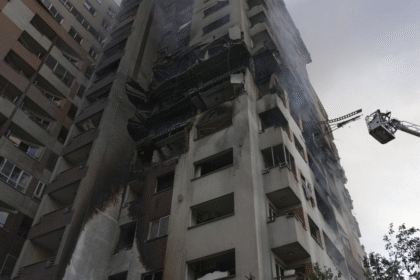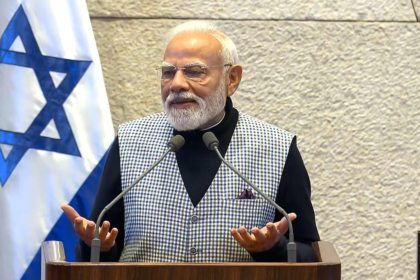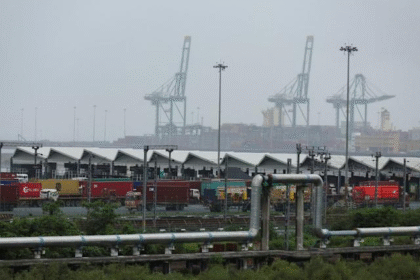India-Pakistan Generals Exchange Sharp Warnings at Shangri-La Dialogue Amid Rising Tensions
India and Pakistan Generals Exchange Warnings at Shangri-La Dialogue Amid High Tensions
At the prestigious Shangri-La Dialogue in Singapore, top military officials from India and Pakistan exchanged sharp warnings amid heightened geopolitical tensions, particularly in the aftermath of the Pahalgam terror attack and India’s retaliatory Operation Sindoor. The rare public interaction between the military heads of the two nuclear-armed neighbours has drawn global attention, highlighting ongoing concerns over regional security in South Asia.
India’s Red Line Against Terrorism
Representing India, Chief of Defence Staff (CDS) General Anil Chauhan delivered a clear and unequivocal message regarding New Delhi’s stance on terrorism. Referring to the recently concluded Operation Sindoor — a coordinated offensive targeting terror infrastructure in Pakistan and Pakistan-occupied Kashmir — General Chauhan said the mission had drawn a definitive “red line” that India would no longer tolerate cross-border terrorism.
“What India has done, politically, is to draw a new red line of intolerance against terror,” General Chauhan stated. “I hope this particular operation, which lies in the military domain, brings about some lessons for our adversary. Hopefully, they will learn that this is the limit of India’s tolerance.”
Speaking during a panel discussion, General Chauhan added, “We have been subjected to this proxy war of terror for almost two decades and more. We have lost a lot of people. We want to put an end to it.”
His remarks came during a session on defence innovation and regional security cooperation, with high-ranking officials from around the world in attendance. India’s firm messaging, echoing its recent operational conduct, was seen as a strategic attempt to reaffirm its position on cross-border terrorism and Pakistan’s role in harbouring extremist groups.
Pakistan Responds With Caution and Criticism
In a parallel session, Pakistan’s Chairman of the Joint Chiefs of Staff Committee, General Sahir Shamshad Mirza, took a more diplomatic yet pointed approach. Stressing the importance of conflict resolution over conflict management, General Mirza warned of the risks of unchecked escalations.
“It has become imperative to move beyond conflict management towards conflict resolution. This will ensure sustainable peace and assured crisis management,” he said.
General Mirza further asserted that the absence of a functional crisis-management framework between India and Pakistan posed grave risks. “Given the Indian policies, the absence of a crisis management mechanism may not give enough time to global powers to intervene and avoid hostilities. They will probably be too late to prevent damage and destruction.”
He also reiterated Pakistan’s long-standing position on the Kashmir issue, calling it the “core” dispute between the two countries. “When there is no crisis, Kashmir is never discussed. The resolution of the Kashmir dispute, in line with the UN Security Council resolutions and the aspirations of the people, is essential for enduring peace in South Asia,” he stated.
Strategic Stability Under Threat
General Mirza warned that the recent military confrontation — including drone and missile exchanges during Operation Sindoor — had lowered the threshold for conventional and strategic warfare.
“The threshold of escalatory war has come dangerously low, implying greater risk on both sides, not just in the disputed territory but across all of India and Pakistan,” he cautioned.
Criticising India’s increasing role as a regional security provider, General Mirza said, “The emboldening of India as a net security provider by the West and its ambition to become a regional hegemon is disincentivising it from engaging in conflict management.”
He also claimed that various global powers, including the United States, United Kingdom, China, Turkiye, Saudi Arabia, and the United Arab Emirates, acted as interlocutors in managing the most recent conflict, though no formal third-party mediation was acknowledged by New Delhi.
Backdrop of Operation Sindoor
Tensions flared dramatically after the April 22 terror attack in Jammu and Kashmir’s Pahalgam region, where 26 people, mostly tourists, were killed. The attack, claimed by The Resistance Front (TRF), an affiliate of Lashkar-e-Taiba, led to India’s launch of Operation Sindoor on May 7.
During this high-intensity four-day operation, Indian forces struck nine identified terror bases across the border. The operation concluded on May 10 following an understanding between the military leaderships of both countries to cease hostilities.
New Delhi has since made it clear that while it remains open to peace, it will respond militarily to any further acts of terror emanating from Pakistani soil.
Global Implications and Regional Concerns
The exchange between General Chauhan and General Mirza reflects not just bilateral tensions but wider concerns about stability in the Indo-Pacific and South Asian region. Analysts note that the comments made at Shangri-La by both military leaders serve dual purposes — projecting national narratives and sending signals to international stakeholders.
India’s growing strategic alignment with the West and its active participation in forums like the Quad contrast with Pakistan’s calls for mediation and dispute resolution. Meanwhile, regional powers are closely monitoring the situation, aware that a miscalculation between India and Pakistan could have devastating consequences.
As the Shangri-La Dialogue concluded, the message from Singapore was clear: despite diplomatic niceties, tensions between India and Pakistan remain unresolved, and without credible mechanisms for crisis management, the risk of future conflict lingers dangerously close.
Also Read : CPIM MP John Brittas Counters Asim Munir’s ‘Hindus and Muslims Are Different’ Remark in Jakarta








